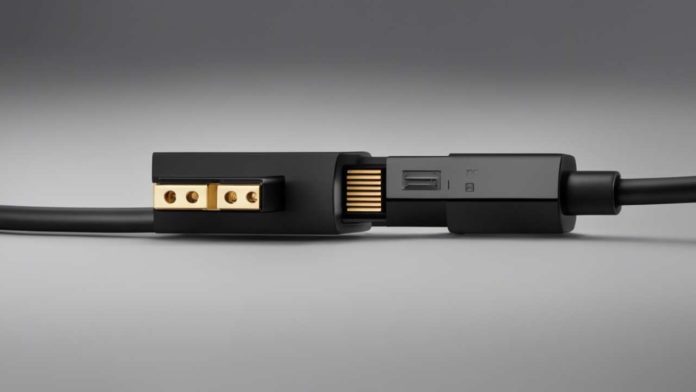Is a High Speed HDMI Cable Good?
When it comes to connecting your devices to your TV or monitor, HDMI cables are the go-to option for most people. They provide high-quality audio and video transmission, making them essential for a seamless entertainment experience. However, with the introduction of high-speed HDMI cables, many consumers wonder if they are worth the investment. In this article, we will explore the benefits and drawbacks of high-speed HDMI cables to determine if they are indeed good.
What is a High Speed HDMI Cable?
A high-speed HDMI cable is a type of HDMI cable that supports higher bandwidth and faster data transfer rates compared to standard HDMI cables. These cables are designed to handle the demands of high-definition video and audio formats, including 4K resolution, 3D content, and deep color depths. They are backward compatible with older HDMI versions, ensuring compatibility with a wide range of devices.
High-speed HDMI cables are typically labeled as « High Speed » or « High Speed with Ethernet » to indicate their capabilities. The « with Ethernet » designation means that the cable also supports Ethernet connectivity, allowing you to share an internet connection between HDMI devices.
The Benefits of High Speed HDMI Cables
1. Enhanced Audio and Video Quality: High-speed HDMI cables are designed to deliver superior audio and video quality. They can handle higher resolutions, refresh rates, and color depths, resulting in a more immersive viewing experience. Whether you’re watching movies, playing video games, or streaming content, a high-speed HDMI cable ensures that you get the best possible picture and sound quality.
2. Future-Proofing: Investing in a high-speed HDMI cable ensures that you’re prepared for future advancements in audio and video technologies. As content creators continue to push the boundaries of what’s possible, having a cable that can handle higher resolutions and data transfer rates will allow you to enjoy the latest content without any limitations.
3. Compatibility: High-speed HDMI cables are backward compatible with older HDMI versions, meaning they can be used with devices that support standard HDMI cables. This versatility makes them a convenient choice for connecting various devices, including TVs, gaming consoles, Blu-ray players, and streaming devices.
4. Longer Cable Lengths: High-speed HDMI cables are designed to maintain signal integrity over longer distances. This is especially important if you need to connect devices that are far apart, such as a projector and a media console. With a high-speed HDMI cable, you can enjoy high-quality audio and video without any signal loss or degradation.
The Drawbacks of High Speed HDMI Cables
1. Cost: High-speed HDMI cables are generally more expensive than standard HDMI cables. The increased performance and capabilities come at a higher price point. However, the price difference is often negligible, especially considering the benefits they offer.
2. Limited Improvement for Some Setups: While high-speed HDMI cables provide significant improvements in audio and video quality, not all setups will benefit equally. If you have a lower-resolution TV or don’t utilize advanced features like 3D or deep color depths, you may not notice a substantial difference compared to a standard HDMI cable.
3. Compatibility with Older Devices: While high-speed HDMI cables are backward compatible, some older devices may not fully support the advanced features provided by these cables. In such cases, you may not be able to take full advantage of the capabilities of a high-speed HDMI cable.
Conclusion
In conclusion, a high-speed HDMI cable can indeed be a good investment, especially if you have a high-resolution TV or utilize advanced audio and video features. These cables provide enhanced audio and video quality, future-proofing, compatibility, and support for longer cable lengths. However, it’s important to consider your specific setup and requirements before making a purchase. If you have a lower-resolution TV or don’t need the advanced features, a standard HDMI cable may suffice. Ultimately, the decision should be based on your individual needs and budget.
Editor’s Opinion
As an expert in the field, I believe that a high-speed HDMI cable is worth the investment for most users. The enhanced audio and video quality, future-proofing, and compatibility make it a reliable choice for connecting devices. While the cost may be slightly higher, the benefits outweigh the drawbacks. However, it’s essential to assess your specific setup and requirements before making a decision.
Frequently Asked Questions (FAQ)
1. Are high-speed HDMI cables compatible with older devices?
Yes, high-speed HDMI cables are backward compatible with older HDMI versions. However, some older devices may not support the advanced features provided by these cables.
2. Can high-speed HDMI cables improve the picture quality of a lower-resolution TV?
While high-speed HDMI cables are designed to handle higher resolutions, their impact on picture quality may be limited for lower-resolution TVs. The improvement will be more noticeable on high-resolution displays.
3. Do I need a high-speed HDMI cable for gaming?
If you’re gaming on a high-resolution display or utilizing advanced gaming features, a high-speed HDMI cable can enhance your gaming experience. However, for standard gaming setups, a standard HDMI cable should suffice.
4. Can high-speed HDMI cables transmit audio and video simultaneously?
Yes, high-speed HDMI cables can transmit audio and video simultaneously. They are designed to handle the demands of high-definition audio and video formats.
5. Are all high-speed HDMI cables the same?
No, not all high-speed HDMI cables are the same. While they all support higher bandwidth and faster data transfer rates, the build quality and materials used can vary. It’s recommended to choose cables from reputable brands to ensure reliability and performance.
Sources:
- « HDMI Licensing Administrator, Inc. » – www.hdmi.org
- « What is HDMI? A Guide to HDMI Cables and Connectors » – www.lifewire.com
- « HDMI Cables: Do They Make a Difference? » – www.cnet.com
- « HDMI Cable Buying Guide » – www.crutchfield.com


